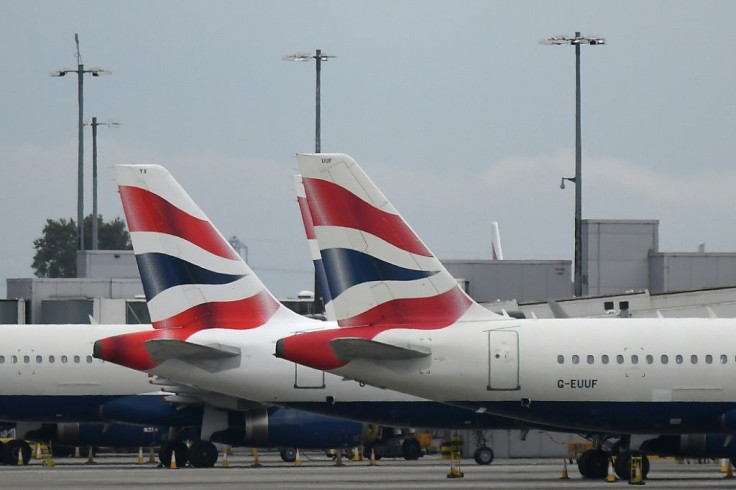Strike-hit British Airways flying into turbulence

British Airways, which likes to call itself the world's favourite airline, flew into turbulence this week as pilots staged a costly and historic two-day strike, tarnishing its global reputation, analysts said on Wednesday.
Pilots walked out for the first time in the company's chequered 100-year history, sparked by a bitter and long-running feud -- which remains unresolved -- over pay.
Management at BA, which is owned by London-listed International Airlines Group (IAG), then faced the embarrassment of grounding its UK fleet on Monday and Tuesday with the cancellation of around 1,600 flights.
The move sparked travel chaos for about 200,000 passengers who had been due to fly in and out of London's Gatwick and Heathrow airports.
Yet BA's reputation will bounce back if it handles the industrial unrest in an effective way, according to Jane Bloomfield, who is head of business development at Kantar UK.
However if mishandled, the row could still spark more reputational damage for BA, which adopted "the world's favourite airline" as its tagline in a famous 1997 advertising campaign.
Strikes 'punish' BA brand
"It is absolutely possible for a brand to recover from such issues and events," Bloomfield told AFP.
"Timely and effective management of PR will be absolutely essential for BA.
"Mismanagement and poor communication may amplify the problem further and damage a brand well beyond the short term."
Even BA Chief Executive Alex Cruz admitted this week that the strikes would "punish" its valuable brand, as well as its customers and employees.
Travellers were meanwhile offered full refunds, or bookings on alternative dates or flights with a different airline.
But the disruption continued on Wednesday because half of BA's 300 aircraft and more than 700 pilots were mostly in the wrong place.
The 4,000 members of BA cabin crew also faced similar chaos due to their scheduled working hours, which are limited by law.
"We are working hard to get back to normal and to get our customers to their destinations," a BA spokesman said Wednesday.
"The nature of our highly complex, global operation means that it will take some time to get back to a completely normal flight schedule."
As a result, BA was forced to cancel approximately ten percent of its daily 850 flights in and out of Britain on Wednesday.
The walkout is by members of the British Airline Pilots Association (BALPA) trade union, whose members want a bigger share of profits.
BALPA, whose 4,000 members voted 93-percent in favour, has urged BA to offer a "significant" proposals to avoid another strike on September 27 -- and the spectre of more nearer Christmas.
The union maintains that management failed to negotiate but BA says it wants to reach agreement.
The airline has offered a salary increase of 11.5 percent over three years, which it argues would boost the annual pay of some captains to £200,000 ($246,000 or 220,000 euros).
However, the union has rejected the proposal that was made back in July.
BALPA meanwhile estimates that the 48-hour strike cost the airline a total of £80 million.
'Big enough to recover'
Independent aviation analyst John Strickland was nevertheless upbeat over the outlook for the airline.
"BA is big enough and powerful enough to recover if this is resolved soon," Strickland told AFP.
However, he cautioned that it would face short-term costs from the loss of revenue from cancelled flights, higher customer compensation, and extra aircraft parking around the world.
BA has yet to issue guidance but it could spell more trouble for parent IAG, whose profits sank in the first half of 2019 on Europe's economic slowdown, intense competition from low-cost carriers and jumping jet fuel costs.
IAG was formed in 2011 with the merger of UK flag carrier British Airways and Spain's Iberia, and has since added other carriers including Austria's Vueling and Ireland's Aer Lingus.
© Copyright AFP 2024. All rights reserved.





















